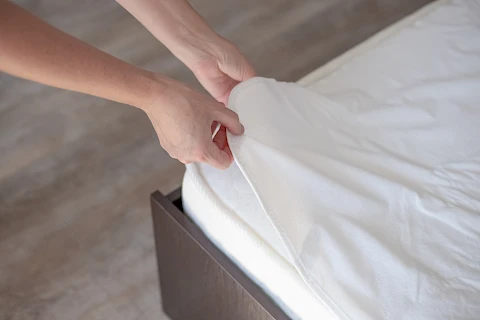
Incontinence is a common and often distressing issue many seniors with Alzheimer's face. It is a challenge that impacts not only their physical health but also their emotional well-being and dignity. As caregivers, it is our responsibility to address this issue with compassion, respect, and practical strategies.
Incontinence in Alzheimer's Patients
Alzheimer's disease often brings a host of challenges, among which is the issue of incontinence. The reasons vary, from the disease affecting the brain areas controlling bladder and bowel functions to the patient's inability to communicate their needs in time. Understanding the "why" behind incontinence helps caregivers manage it better and reduces the potential stress and frustration.
Maintaining Dignity and Respect
Embarrassment can often accompany incontinence in seniors with Alzheimer's. Remembering to maintain their dignity during these situations is paramount. This can be as simple as using a calming, reassuring tone when accidents occur or giving them privacy during change time. Small actions like these can make a significant difference in the senior's emotional well-being.
Choosing the Right Incontinence Products
Choosing the right incontinence products can significantly enhance the comfort of those with Alzheimer's. There are numerous products available, including adult diapers, pull-up underwear, and bed pads. The trick is to find the one that fits best and meets the individual's specific needs. Consulting with a healthcare professional can provide valuable insights into making the right selection. You can also consider experimenting with products to find one that offers the best protection while still keeping your loved one comfortable.
Addressing Underlying Medical Issues
At times, other medical conditions, such as urinary tract infections (UTIs), can exacerbate incontinence in Alzheimer's patients. Regular medical check-ups and clear communication with healthcare providers can help isolate and treat these conditions. Timely medical intervention can not only improve incontinence but also the overall health of the senior.
Establishing a Toileting Routine
A regular toileting routine can help manage incontinence effectively. This involves taking the senior to the bathroom at set intervals, which can be every 2-3 hours, depending on their fluid intake and habits. A routine can offer a sense of predictability and control, reducing the incidence of accidents.
Modifying the Home Environment
Minor modifications in the home can significantly aid in managing incontinence. This could include ensuring a clear and well-lit path to the bathroom, installing grab bars for support, and using waterproof mattress protectors. Such alterations can enhance safety, accessibility, and ease of cleaning, making the management of incontinence less stressful for both the caregiver and the individual receiving care.
We Offer Support for Seniors With Alzheimer's
Managing incontinence in seniors with Alzheimer's can be challenging, but with patience, understanding, and the right strategies, it becomes manageable. Of course, that does not mean that you have to handle all the challenges that go along with Alzheimer's on your own. If you're in need of professional help in North Fort Myers, Lehigh Acres, Punta Gorda, Sanibel, or Captiva, don't hesitate to reach out to us at Senior Helpers Fort Myers Cape Coral. Our team of compassionate and experienced caregivers is here to assist you and your loved ones in managing Alzheimer's and all the challenges it brings, including incontinence. Our goal is to ensure comfort and dignity for your loved ones at all times.